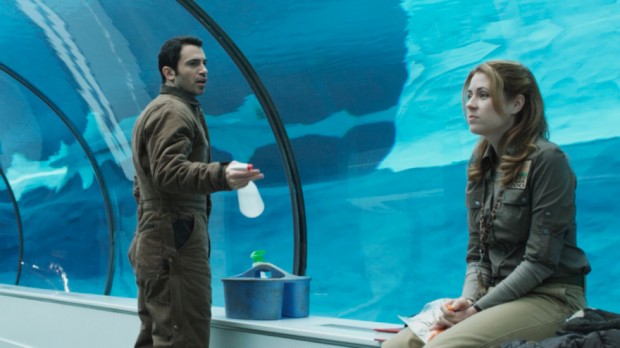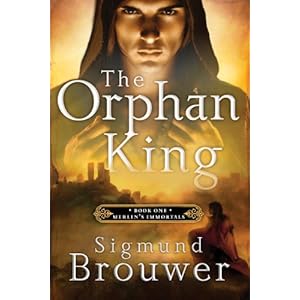 |
| Sidney Paget |
First Off: a little review and then Hound rambles forevermore......
Our Holmes: Peter Cushing
Our Watson: Andre Morrell
Our Henry Baskerville: Lord Sauron
Our Hound: Marmaduke
This is not the worst Hound of the Baskervilles out there
(Hello Matt Frewer and Kenneth Walsh); but it’s certainly not great
either. While it is atmospheric (in a
technicolour-same-sets-and-costumes-as-Bonanza
kind of way), it fails to emote any sheer terror. I am all for campy and I
think that is where this best fits in.
Hammer productions was renowned for providing cinema adaptations of some
of the greatest horror and thriller stories of all time ( often starring
Cushing and Christopher Lee) and I think this is just one more case where they
tried to evoke an atmosphere and slightly failed. This Hound is not scary. Now, let’s face it,
with the exception of the psychological terror we experience thanks to fog
machines and good lighting and a modern premise in the BBC adaptation, few have
actually seen a scary version of Hound.
The Richard Roxburgh “Hound” won’t keep you up at night. The Jeremy Brett? Well, egads. Enough about
that. The Basil Rathbone? Okay, dude, the Rathbone enterprise drives me
bonkers. WHY? Because the Watson is useless. Nigel Bruce, you suck.
It is not particularly creepy; but it tries. It’s also not
bad on the faithfulness front.
I don’t fault this version for its lack of provoked eeriness. It does throw an “Elementary, My dear Watson”
in and mentions Holmes’ “two pipe” (instead of notorious “three pipe” )
problem. There is little to no chemistry between Watson and Holmes but that is part and parcel
of extracting one view from the Canon. Those, indeed, are faults that a purist
notes. They also played a lot with Miss Stapleton’s role and strayed far from
canon. The idea of spousal abuse might
not have been as easy to film in the 1950s, perhaps. The best part of this adaptation ( and why it
is heralded as a pivotal adaptation) is in its conceptualization of Watson. No longer
is he seen as the bumbling Watson of yore ( think Nigel Bruce, think Howard
Marion Crawford in the 1954 TV series starring Ronald Howard); but rather as a
deductive and intelligent individual in his own right. In short, as Watson is
in the book.
Prior to this, Hollywood and
Television belief was that in order to draw in an audience, you needed to
provide as many ingredients of a fascinating and entertaining tale as possible.
Sherlock could provide the smarts and the wits and the super-brain, the tales
themselves could provide the thrills and the Watson could provide the comic
buffoonery. This is before, I believe,
they realized that the quiet balance between the two minds was indeed enough to
draw in a thinking audience. One need
not sacrifice Watson for the ill-founded belief that a guy with his figurative
foot-in-the-bucket is what is needed to generate appeal. If this was so, why did thousands of people
flock to the newsstands to buy the Strand upon its publication?
I think part of the beauty of The Hound of the Baskervilles and the
testament to its long-lasting appeal is that it is shaped around an oral
narration. The curse of the Baskervilles
and the legend of the Hound has been passed down from generation to generation
in the kind of story that flickers candles on a stormy eve and makes things go “bump”
in the night. You, of course, are
deliciously scared when this occultish tale is spun by Dr. Mortimer at the
beginning of the novella and yet, on
screen? It’s hard to get to that
deliciously creepy feeling as it tickles up your arms and causes you to
look behind your shoulder.
 |
| Sir Benedict as Sherlock on the moors in BBC "Hounds" |
The brilliance of Hound is that it separates Holmes and Watson. Watson, now more than ever, is our intrepid
and trusty guide. It is Watson who , with service revolver ready, follows Sir
Henry to Baskerville Hall and hellish Dartmoor. It is Watson who encounters and theorizes the
extent of the villainy of Stapleton and the outlaw-on –the-moors Selden. Holmes works behind the scenes waiting,
instead, for a self-proclaimed unneeded and grand entrance. Often, film-makers find this a bit of a
Catch-22. While they are eager to adapt
and visualize the most famous tale of the Canon; they are confronted with the
very real fact that condensing this piece means sacrificing what little time
the hero of the tale actually has in the story.
People want to see Sherlock Holmes deduce things and yet the story is
very much an exploration of Watson’s endeavours to utilize Holmes’ methods when
left on his own.
The novel is also brilliant in its mesmerizing marriage of
detective thriller and horror story.
Those with a devoted interest to Conan Doyle know that he was absolutely
obsessed with the Occult and the Supernatural.
He researched and practiced the New Age, believed in fairies (!!) and séances
and was quite into all of this dreaded and spiritual stuff. As such, he is able
to infuse his story with elements quite unexplainable to the untrained and
naked eye. To further this, he is able
to clash his own beliefs in the extraordinary with his creation’s absolute
certainty that nothing beyond the possible can exist. Everything must have data, be circumscriptive
to logistics and rationality. Coupling
his passion for the occult with his sleuth’s obvious disdain for anything that
cannot be reasoned away provides added delight for the reader.
Perhaps the most pervading delight for the 1902 reader was
the return of Sherlock Holmes. The last
they had seen him he had been thrown off the Reichenbach Falls by his nemesis
Moriarty and eulogized in a postscript by Watson. Modern Holmesians recognize that these
intermittent years just make up the Great Hiatus; but readers of the
long-awaited return believed this to be yet another memoir of a time set before
Holmes’ death. For many, who had worn
black arm bands (across continents) and wrote threatening letters to Doyle,
this was a much-needed glimpse back into a world they were starving for.
 |
| Sidney Paget |
To show amends perhaps, and fair justice to his North
American fans ( who were quite vocal and passionate), Doyle did well in
including a North American in his tale: the Canadian Henry Baskerville who is
much the same level of hero in the tale as Watson or Holmes. Doyle is (perhaps) showing an olive branch
for murdering the dear literary love of many; but also recognizing his success
rested largely on other continents than his own.
 |
| From "The Hound of the Baskervilles" graphic novel |











